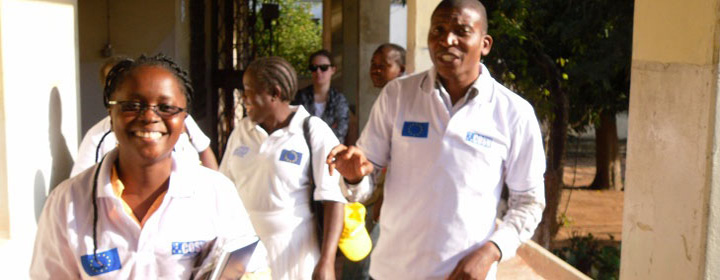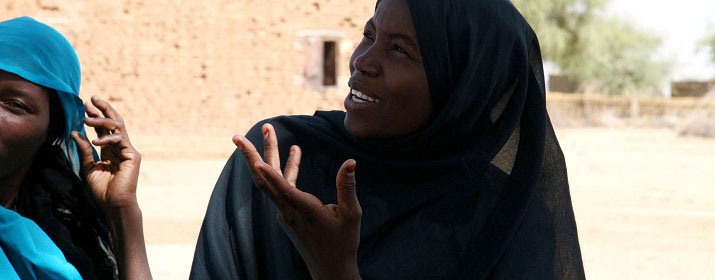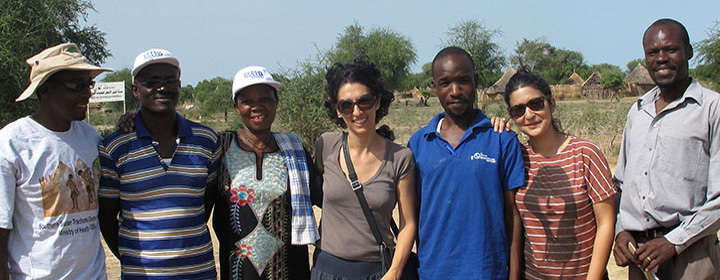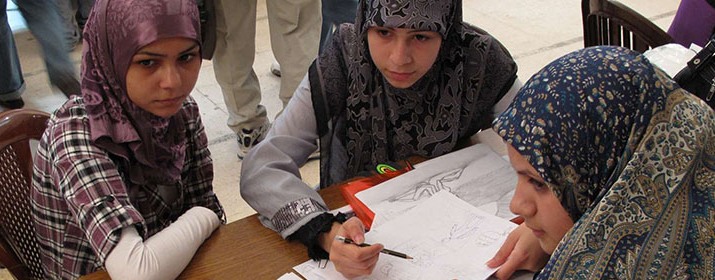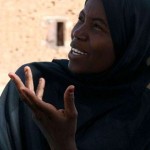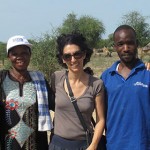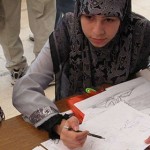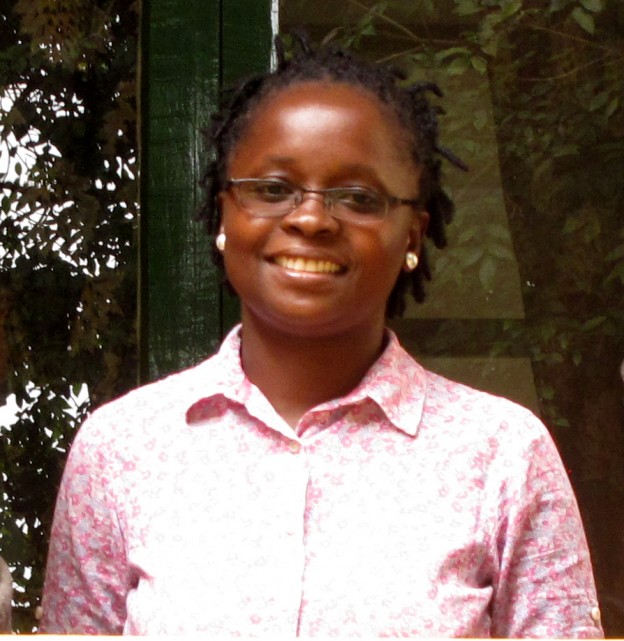When did you start working with COSV and how you got there?
I started working at COSV in January 2011, it was through a friend who informed me that COSV needed an Administrative Secretary. At the same time I was admitted to the faculty of sociology, and Mark (the country coordinator) subsequently suggested me to change my position from administration to social project coordination.
What does it mean for you to work with an NGO?
First of all, for me it is a great pleasure. Before that I worked for a private company, which obviously does not have the social background of an NGO. Working with an NGO allows me to get closer to social issues that are addressed in which I identify myself and where I can contribute. Even the meeting with international professionals is very important because it allows me to grow professionally.
How is your involvement in an international NGOs perceived within your social context?
There is a stereotype that people who work in international NGOs earn much, however my challenge is to prove that this is not the motivation, because for me working for an NGO means contributing to changes. This is easier when you live in an urban setting, away from the family, which often demands money from you for the work you do.
What is the impact of what you are doing?
I saw the main impact with the project on domestic violence , which helped to break up with a certain kind of tradition. Thanks to the law and activists a change in behavior and culture is starting: domestic violence is no more considered as part of the tradition.
Working at COSV has had a strong impact on myself, it gave me the opportunity to be an active part of the change, coming into contact with the local authorities and associations. I could also learn new values, such as respect and the value of human rights.
Furthermore, working with an NGO with projects in various sectors, allows me to get in contact with issues and areas that are not part of my background, but that interest me. For example, in the music project, doing the interviews, I came into contact with the music and the life stories of the people involved that opened my mind to a new field.
Tell us about a meaningful experience in your job with COSV
Working with Mark, who was a country representative for COSV in Mozambique, was a valuable opportunity: he taught me how to interact with the different realities of civil society, encouraged me to participate in discussions and had experience in the field of domestic violence. A particular case which I witnessed during my work as coordinator of the social sector, it was when I helped a couple to not separate. It was a couple who lived together for three years but for some time there was no agreement between the two. The woman called me to ask for my help, her husband had beaten her and thrown out of the house. I called the couple and we embarked on a path to understand how the cycle of violence can grow and the different forms it takes. It was significant because the couple revived again and they married. They still thank me for the help.
Have you experienced changes / disappointments on your work experience with COSV?
During my work I have had a bad experience working with a colleague, who worked for a partner association of the project. She did not comply with professional ethics, had no respect for my job and she was often aggressive. Unfortunately, it is also mixed up in my private life. Working with her was really a great sacrifice.
What do you expect from your future?
My desire is to be a sociologist prepared to fight for human rights in my country.
How do you see your country in 20 years?
I think that Mozambique will experience a growth in all sectors and a dynamic change in the way we think and act. There is a growth of social movements of civil society, democracy in Mozambique is beginning to be implemented: whereas before people did not speak, with the awareness of their rights, people start to talk in an organized manner. There was recently a march against kidnapping, which led to an utterance of the public ministry of justice, and indeed there has been an impact on the phenomenon. Even at the political level, we perceive a tendency to undermine the established powers and a greater rotation of those who are in power.

